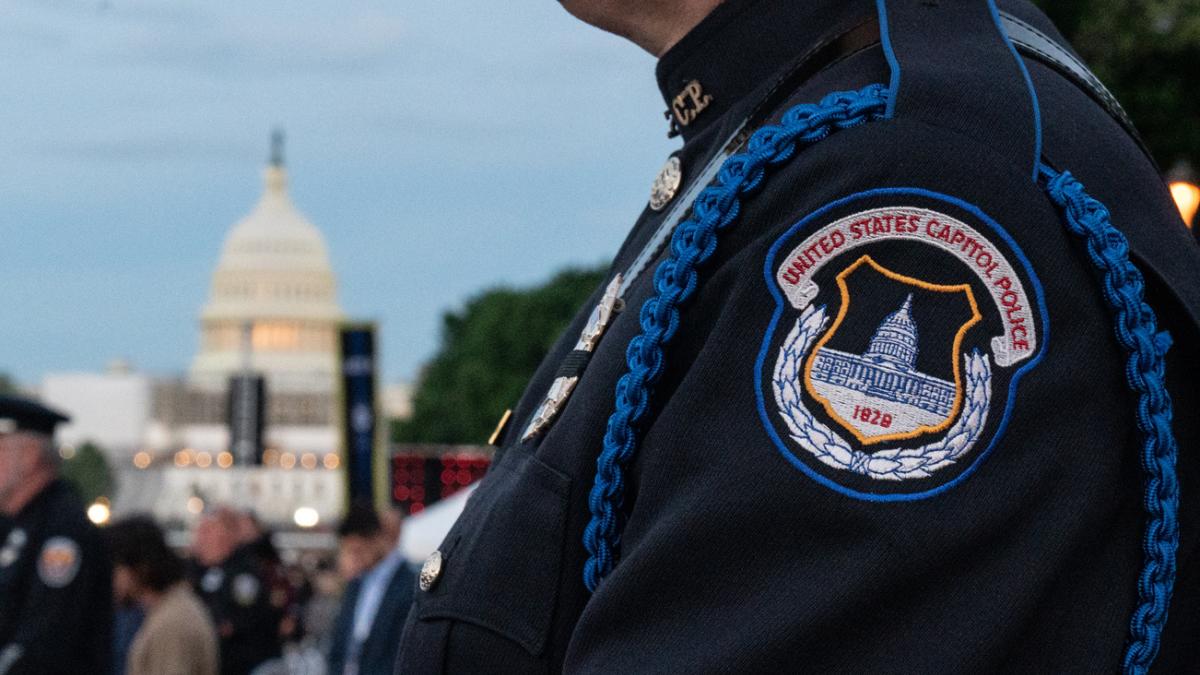Criminal Justice

From my time as a prosecutor and Prince George’s County State’s Attorney, I know that criminal justice and public safety are required to make our society work for everyone.
We can and must do better to avoid tragedies, improve public safety, and enforce justice. Investing in our communities through unarmed first-responder agencies, mental health and crisis-support treatment options, community intervention programs, and re-entry programs are good first steps toward progress. I will never stop working to support and effect changes that will make our country safer for all Americans.
COPS Grants and Recruit and Retain Act Win
Last Congress, I worked with my colleague across the aisle, Representative Wesley Hunt (TX-38) to introduce H.R. 3325, the Recruit and Retain Act. This bill was signed by President Biden and has since been a critical resource to helping law enforcement offices combat staffing shortages.
The Recruit and Retain Act expands the U.S. Department of Justice’s Community Oriented Policing Services (COPS) grants to cover more onboarding costs, making it easier for law enforcement agencies to hire new officers. It also bolsters local hiring pipelines through a new partnership program between schools and departments.
I am committed to finding bi-partisan solutions to criminal justice issues because public safety and justice affect us all regardless of political ideology. The Recruit and Retain Act was a major win in the 118th Congress. In this session of Congress, I am committed to passing more legislation that makes our communities smarter on crime.
Lead House Sponsor of the George Floyd Justice in Policing Act
We must also implement smart and meaningful reforms to policing in America. I am proud to be the lead House sponsor of H.R. 5361, the George Floyd Justice in Policing Act, a bill that would hold the police accountable for misconduct, improve training and practices, and increase transparency in policing. This legislation is a necessary step to fix a broken system, and I will continue to champion its passage in Congress.
Justice and the Rule of Law
Upholding and defending the rule of law is at the core of my responsibilities as your Congressman. Throughout my career, I have worked tirelessly to uphold the principles of justice, fairness, and equality enshrined in the Constitution. From my experiences as an attorney, public servant, and now as a member of the Ethics Committee in Congress, I have witnessed firsthand the power that checks, balances, and respect for the rule of law can have on our society.
When President Trump and MAGA Republicans threaten judges with impeachment or introduce legislation to undermine their power, it violates the checks and balances that are fundamental for our democracy. I will continue to fight for transparency, respect, and the rule of law at every opportunity. Our democracy demands that we hold ourselves and our government to the highest standards, and I am committed to being a tireless advocate for these principles in Congress.
Relevant Legislation
I am proud to have either sponsored or co-sponsored the following legislation, and I will work tirelessly towards passing this legislation in the 119th Congress.
H.R. 5361, the George Floyd Justice in Policing Act, would implement much-needed reforms to combat prejudice and excessive force in policing. I am proud to be the lead House sponsor of this legislation.
H.R. 3372, the Law Enforcement Scenario-Based Training for Safety and De-Escalation Act of 2025, develops a scenario-based training curriculum for law enforcement officers.
H.R. 3312, the SERVICE ACT of 2025, creates grants for the development and implementation of veterans response teams within law enforcement agencies.
H.R. 2669, the Community First Act, decreases the number of individuals incarcerated in local jails, reduces the amount of days individuals are incarcerated in local jails, and supports community-led local justice reinvestment.
H.R. 1726, the Project Safer Neighborhoods Reauthorization Act of 2025, establishes a nationwide initiative that brings together Federal, State, local, and Tribal law enforcement officials, as well as prosecutors, community leaders, and other stakeholders to identify and address the most pressing problems in a community.
Community Engagement and Public Education
Understanding how crime and failures of our justice system affect my constituents is incredibly important to me–both as your Congressman and neighbor. That’s why I:
- Joined the Community Justice Action Fund to break down the Trump Administration’s dismantling of community violence intervention efforts like ending the Community Violence Intervention and Prevention Initiative (CVIPI), shuttering the Office of Gun Violence Prevention, and scaling back federal gun tracing programs.
- Worked with local leaders to push back against ATM and retail robberies in Prince George’s County.
- Met with local leaders at the First Baptist Church of Highland Park and spoke on their Social Justice Ministry’s panel dedicated to the Trump administration’s threat to our democracy and possible constitutional crisis.
- Attended the Social Justice Alliance Symposium with the University of Maryland, College Park and Bowie State University, which brought together change makers, scholars, and community leaders to explore the power of grassroots mobilization, coalition-building, and activism in today’s complex social and political landscape.
Working with members of our community is the best path to combatting crime in our district. I will continue to collaborate with local organizations and leaders to make everyone in my district safer.

